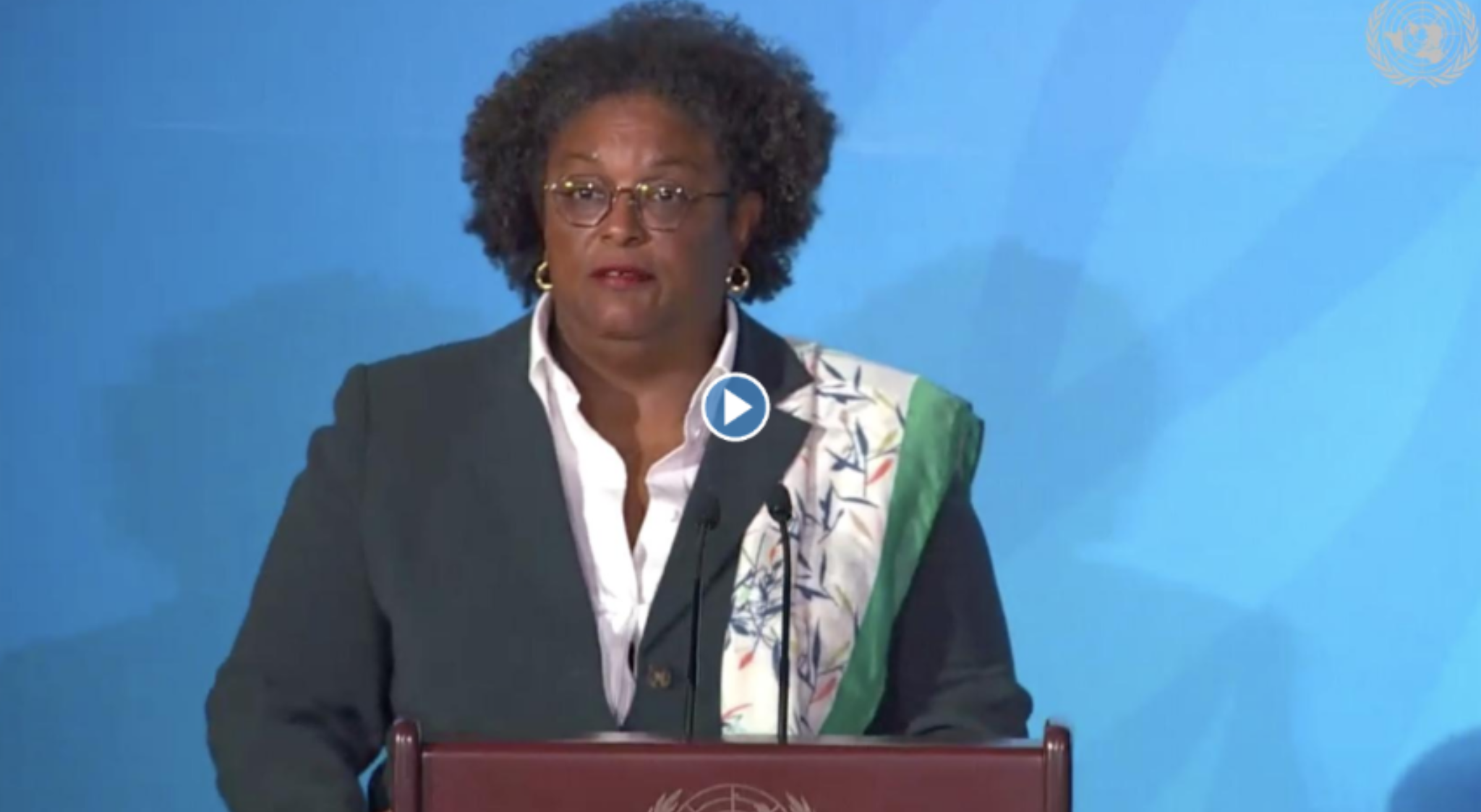Barbadian Prime Minister Mia Mottley told the United Nations climate summit on Monday that even under the current goal to limit global temperature rise, many small Caribbean islands will not survive.
Mottley called for the two-degree rise in temperature, as outlined in the Paris Agreement, to be taken off the table as the standard to stave off effects from Climate Change. The U.N.’s Intergovernmental Panel on Climate Change forecast global temperatures will rise 1.5 degrees Celsius from their pre-industrial baseline sometime between 2030 and 2052 — which Mottley says is enough to lead to disaster for the islands.
"The real solution is for us to not keep asking people to make commitments that are small … but the global community must accept it is within our power to halt and reverse climate change,” Mottley said.
Mottley spoke on behalf of the Alliance of Small Island States, a group of 44 small islands and low-lying coastal developing states, who came together to influence the climate debate.
PM Barbados Mia Mottley not giving a F about UN colonial speaking time and demanding respect for the Caribbean: "I'm speaking on behalf of 20% of community of nations of this body… we refuse … to be collateral damage for the greed of others.." #ClimateActionSummit
pic.twitter.com/qrViV2COMU— sablikatriumph (@sablikatriumph) September 23, 2019
“If it were up to our community of small islands to solve the problem of climate change, it would have been solved three decades ago when we raised it," Mottley said in her speech. "We refuse to be relegated to the footnotes of history and to be collateral damage for the greed of others.”
Mottley warned the current course of action would lead to mass migration of climate refugees that would be capable of destabilizing the world and called for a change in worldwide priorities.
“The world finds it possible to apply resources to solving male baldness while it cannot find the resources to cure malaria. These misplaced priorities will lose us the battle,” Mottley said.
In May, Barbados teamed with Green Climate Fund to create solar power facilities for water pumping stations and micro-gas turbines to be used for backup in times of storms.
